Fundamental Studies
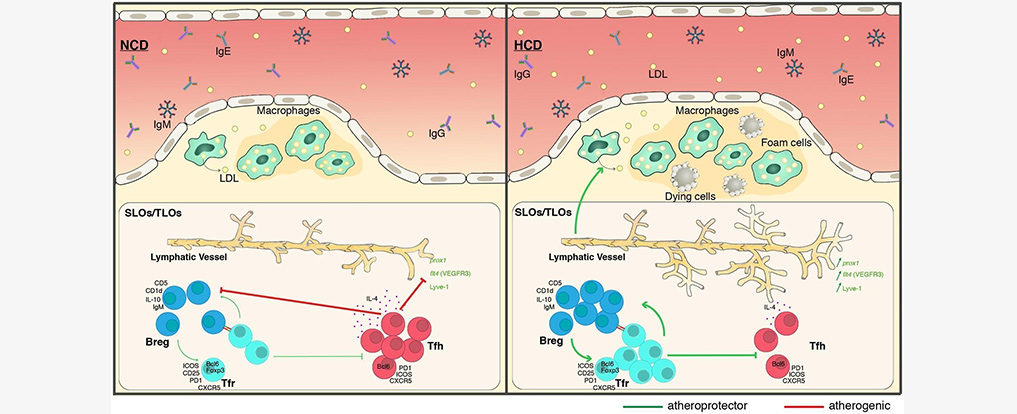
Follicular regulatory helper T cells control the response of regulatory B cells to a high-cholesterol diet
Status : Finished on 19th april 2020, published 1st of March 2021
Journal : Cardiovasc Res, Volume 117, Issue 3, Pages 743–755
Autors : Fabienne Burger †, Kapka Miteva, Daniela Baptista, Aline Roth, Rodrigo A Fraga-Silva, Catherine Martel, Nikolaos Stergiopulos, François Mach, Karim J Brandt
Our results suggest that Follicular regulatory T cell (TFR) populations play a crucial role in the establishment of atherosclerotic lesions in response to a high cholesterol Diet (HCD).
Consult the study
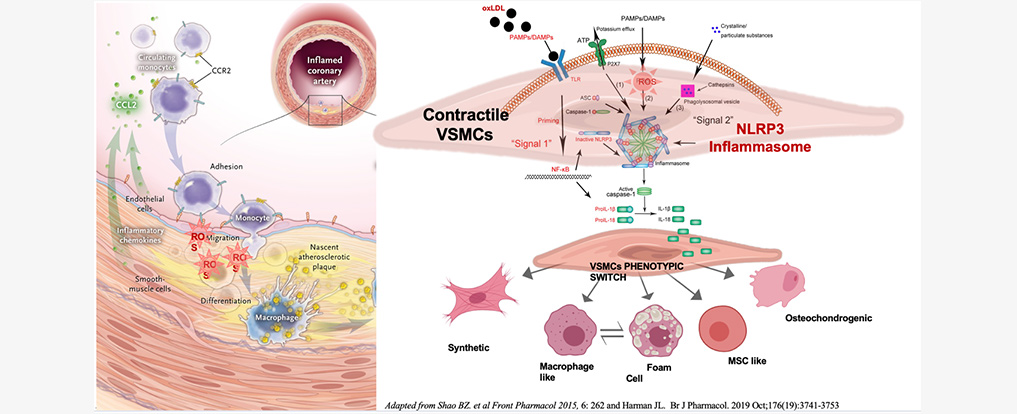
Monocytes derived ROS triggers NLRP3 Inflammasome Activation in VSMCs and Promotes VSMCs Phenotypic Switch
One of our recent findings demonstrates that monocytes which are the first wave of intima invading cells in atherosclerosis invade the intima and produce proinflammatory factors as well as reactive oxygen species and which could induce Vascular smooth muscle cells (VSMC).
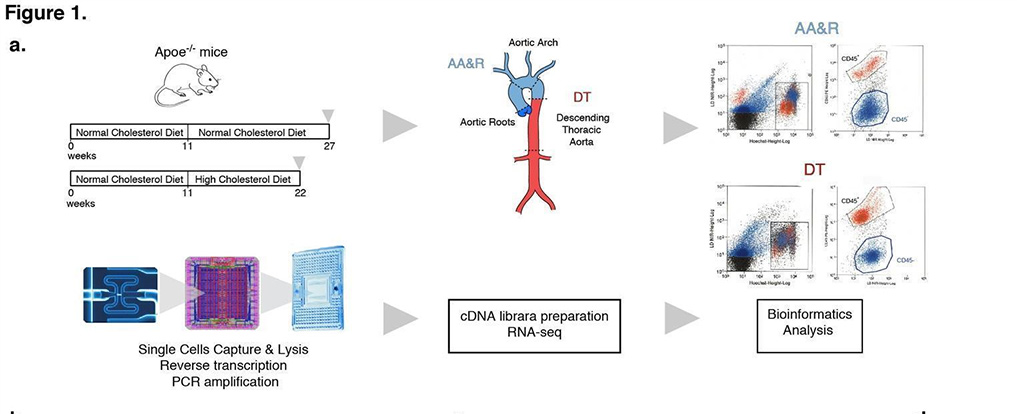
Single-cell RNA sequencing of CD45+ and CD45- cells derived from Apoe-/- mice on
a normal (NCD) or high cholesterol diet (HCD)
Using single-cell RNA sequencing (scRNAseq), we comprehensively characterized the transcriptomic profile of the phenotypically modulated Vascular smooth muscle cells as well as immune cell populations in atherosclerosis-prone or atherosclerosis-resistant parts of the aorta during atherosclerosis progression.
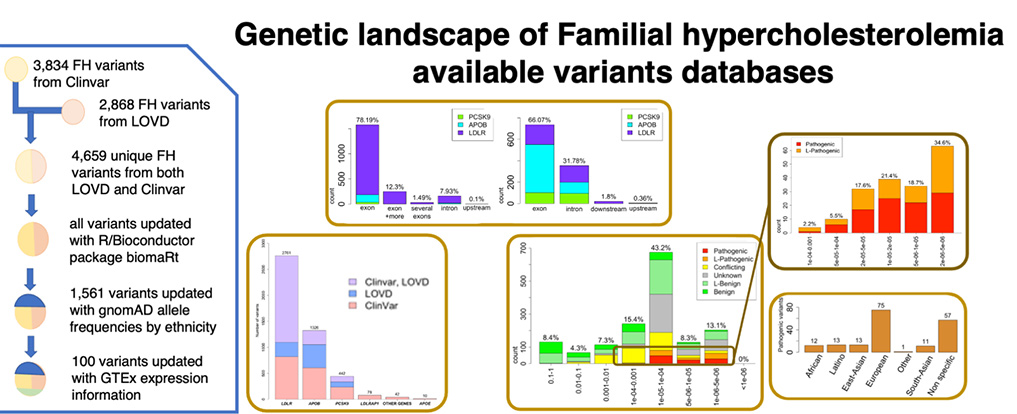
Genomic analyses of all known putative familial hypercholesterolemia mutations showcase the value and limitations of public familial hypercholesterolemia mutation databases
Familial hypercholesterolemia (FH) is one of the most frequent monogenic disorders.
Most cases of FH are due to a mutation in either the LDLR gene coding for the LDL receptor or the genes coding for proteins interacting with it, such as APOB and PCSK9.
We aimed to evaluate all currently known publicly available putative FH variants from the LOVD and ClinVar databases that are frequently considered clinically, using genetic tools and novel genomic datasets:
Published as abstract to the annual conference of the European Society of Cardiology in 2020
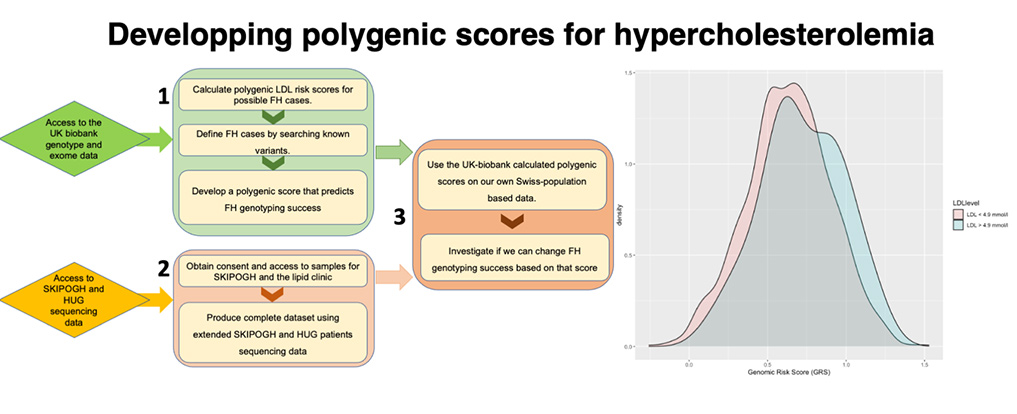
Facilitated FH genotyping using a polygenic lipid score.
We aim at increasing the yield of sequencing for FH cases by “filtering” using a polygenic LDL score. We wish to evaluate if the knowledge of a polygenic LDL score (computed from data from the UK biobank) would permit cost-effective prioritization of individuals to sequence.
Project supported with fundings from the Swiss Foundation of Cardiology (2021).
Suscribe to our Newsletter
Error: Contact form not found.
Suscribe to our
Newsletter
Error: Contact form not found.
